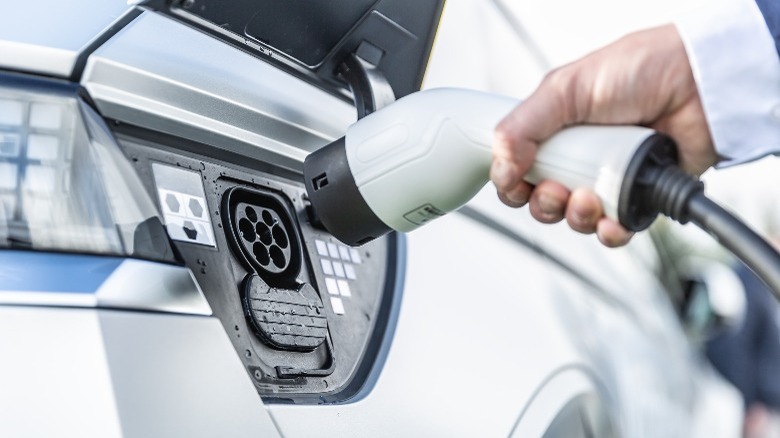Are EVs Less Likely To Get Stolen Than Gas Powered Cars?
In the years after the global health crisis began in 2019, vehicle thefts in the United States were on an upward trajectory. Component shortages caused by manufacturing shutdowns during the COVID-19 pandemic resulted in a dearth of new vehicles available for sale both in the United States and abroad — a vacuum that was soon filled with vehicles stolen domestically and shipped internationally.
According to a report published by the Highway Loss Data Institute (HLDI) in 2023, some of the most common vehicles stolen between 2020 and 2022 were performance models from Dodge including the Charger SRT Hellcat, Charger Hemi, and Challenger. Conversely, in the same report, electric vehicles including four different models from Tesla as well as the Nissan Leaf were among the 20 least likely to be stolen. Interestingly, while electric vehicles less likely to be stolen, some EV brands like Tesla have relatively expensive insurance rates.
So why were these EVs among the least to be stolen in the United States? What is it about electric vehicles that makes car thieves avoid them like the last kid to be picked on a dodgeball team?
Why are EVs less likely to be stolen?
Electric cars have proven more difficult to steal than their internal-combustion powered brethren. Advanced features like digital keys, integrated cameras with a sentry mode, and sophisticated telematics that connect the car to their owner's smartphone make it harder for a thief to gain entry to an EV, let alone get it started. Many EV charging cables at terminals feature a lock at both connection points that requires the owner to release it via a card, while cutting a charging cable presents a real threat of death by high voltage shock. While features like digital keys are not without their own risk for owners, the connected nature of EVs makes them a hard sell for potential thieves, literally.
Many stolen vehicles are shipped overseas from ports on the U.S. East Coast to Western Africa. Electric vehicle charging infrastructure in Africa is sparse and varies by region, making it a less-than-ideal market for stolen vehicles powered by a battery. Supply and demand applies everywhere, even on the black market.

